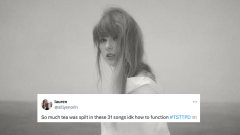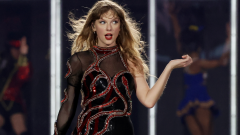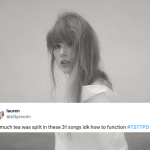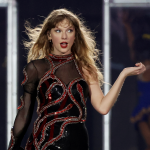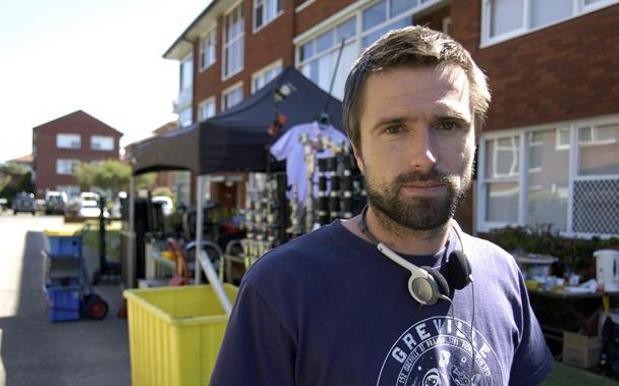
Animal Kingdom, the debut feature film from writer/director David Michod, is a self-assured, gripping and darkly poignant portrayal of Australian suburbia, familial dysfunction and the oft-opposing forces of, quite literally, cops and robbers. Inspired in part by the 1988 Walsh Street police shootings in Melbourne, Animal Kingdom will inevitably draw comparisons to Underbelly but where the latter banks on sentimentality and telling instead of showing, Michod’s study of the Melbourne underworld boasts an understated script, compelling performances and an ambitiously cinematic approach to sound and picture. Pedestrian recently caught up with Michod to discuss his whirlwind trip to Sundance, having lunch with Harvey Weinstein, the Blue Tongue collective and handling on set fist fights.
You’ve been promoting this film for almost six months now, is there kind of a light at the end of the tunnel yet? To be honest, I’m not even sure. I’ve been expecting the whole kind of madness to calm down for what feels like weeks if not months now and… it never does. All I know is that in a week I’m flying to LA to kick off the whole beginning of the American campaign and then I’ve got to come back and go to New Zealand and back to America again and then Italy and France and the UK in the second half of the year, it’s kind of crazy.
So the job doesn’t end with the final edit in the can does it? No, totally not. And I think it’s important to stay involved because everything about how a film gets marketed and publicized is connected in some way. It’s whatever the heart and soul of the movie is itself. I think Directors especially have a lot to offer in that part of the process. But certainly when you’re in my position and you’ve been working on it for a long time I want to see it all the way through to the very end.
It was kind of a long gestating period for the script, ten years I think since you first conceived the idea to now. Is there a sense of validation now that Animal Kingdom has been received the way it has? When I think back to what those days were like when I first starting writing the script, I was not long out of film school and started writing this thing that was way bigger than what I thought I would be ever allowed to make. And so there’s a huge element of pipe dreaming there and with that pipe dreaming comes a constant voice in your head that’s just wondering if you’re wasting your time, you know, wondering if you’re delusional. So you finally get to the end of the process and not just to get to make it but then to have it be received as well as it has been has been… yeah, validation is a good word.
Does that self-doubt ever go away? Like that fear that’s present in the editing room or before the premiere…Is that still present even now? Good question. Yeah, it never goes away. It was actually at its worst when we were editing. And it lingers the whole time and it still does for me, every time I go and introduce a screening or do a Q and A, every audience is a new audience and there’s always that voice in your head that’s wondering whether or not this group of people together will get the thing. But at the same time I think that level of self doubt is healthy because it makes you think really critically and it makes you work hard and I think it’s important that it be there, it’s just if it gets too extreme then it can bring on a kind of paralysis… if the anxiety it there then the work will be rigorous.
To me it seems like each country has their own culture-specific crime film. You have City Of God In Brazil, Gomorrah in Italy, La Haine or A Prophet from France, take your pick from Hong Kong and Korea and maybe Pulp Fiction or Goodfellas in America – do you think Animal Kingdom can be added to that kind of crime film canon and was that your intention? I’m not sure. I’m not sure how it fits but I do know that in terms of my aspirations I wanted to make a film that was a great Australian crime film and to the same extent that those films that you mentioned sit as great examples of crime cinema from those particular cultures. Then yeah it was definitely my aspiration to make a great Australian crime film.
Let’s talk a bit about Blue Tongue Films because it really seems like you guys are in the spotlight at the moment. Your own film is doing well obviously but Nash and Joel’s film The Square is doing really well in America right now and Hesher which you co-wrote with Spencer is about to be released and there are too many co-credits and collaborations to mention – what do the members of this collective give each other? I think what we give each other is as simple as support and company. The very fact that films are so dauntingly huge such that all those years ago when I was writing…I couldn’t imagine ever being in a position where someone would let me make the movie. There’s something very supportive about having people around you who are in the same boat. Just knowing that, at the very least, there are people around you makes you a little less delusional. The fact that there are people around you that have the same delusions is comforting. It’s been encouraging and rewarding for all of us to watch our respective careers grow in parallel and to see these things happen which in a way, because of the nature of the little collective, isn’t coincidental. The fact that The Square and Hesher and Animal Kingdom have all happened around the same time isn’t exactly coincidental because it’s all very much a product of the shorts we were doing together and the kind of the heat and the momentum that we got coming out of those shorts. Such that for Spencer and I to have our features at Sundance together in the same year given that there’s only 30 films, less than that, about 26 films in competition at Sundance out of about 2500 entries. For us to both have feature films there in competition in the same year was very much the product of the shorts that we had at Sundance two years before which got a lot of attention and just did good things for us.
Does this feel like a moment for all you guys? There was certainly a feeling when we were at Sundance, Spencer and I were there obviously and Nash and Joel and Luke Doolan were there too and it just felt like we were there as a group and it felt like a special moment because we were all somehow intimately involved in both of those films. And then literally it felt like a couple of days after Sundance Luke Doolan got his Oscar nomination and there was this one particular dinner I remember when we all went out to the Chateau Marmont on Sunset Boulevard and we were just looking around the table thinking ‘Look where we are’, all those years ago, this dinner at this table would have been just a silly dream… but here we are and we’re doing it.
And is Sundance the Hollywood meat market it’s painted out to be? Yeah totally, I felt like I was having that quintessential, mythic Sundance experience which is sitting down and having a meeting with Harvey Weinstein. Then a couple of weeks after that having lunch with Curtis Hanson and Andrew Dominik and I was just sitting there pinching myself, you know?
Wow that’s great. I actually saw this video of you, I think it’s taken from the St. Kilda film festival in 2008 and you say the following with regard to Australian film: “What would be nice is if a slew of really good quality Australian films one after the other came along that re-inspired Australian audiences”. So with Samson And Delilah winning at Cannes last year and Animal Kingdom winning at Sundance this year, is that kind of a self-fulfilling prophecy? Maybe you’re right, maybe there’s just something as simple as a couple, just a few in a row that pop can work wonders in terms of restoring people’s faith in Australian cinema. But having said that, we can’t expect that every film that gets made here is going to work, films are incredibly difficult things to make; most people get it wrong, even though they try their hardest not to. And in any given year, in a country that produces between 20 and 40 films a year, we can’t expect any more than two or three maybe to really work. And I think that’s true of every film culture in the world. People are unnecessarily hard on Australian film in Australia and I think that they don’t fully appreciate that all the cinema that we see from everywhere else in the world is the absolute cream of the crop… the best films that have been made and we don’t have to watch all of the countless diabolically bad films that get made in every other country around the world because they just don’t make it here. When you put things in that context it becomes quite clear that, I think some of the criticism that the Australian film industry cops is actually quite unreasonable.
In terms of say, finding an audience though do you think there’s been a slight attitude shift in Australian audiences? On a certain level it feel like there has been. I’m not totally across what the box office figures for the last twelve months have been like but it does feel like there’s been a couple of films that have attracted audiences and that would seem to suggest that people are becoming a little bit more open to seeing Australian films at the cinema.
You’ve described the Australian film industry with the euphemism “modest” yet everything about Animal Kingdom from the sound design, to the cinematography, the script, even the title is so huge and cinematic – is that modesty in production values the biggest hurdle to the Australian film industry? I think that kind of modesty that so often feels pervasive in Australian films is not necessarily at the level of resources or technical abilities; I think it’s most notable at the level of ideas. Animal Kingdom had a lot of characters and a lot of locations and what on the surface is a kind of big story and yet Australian filmmakers and Australian crews are notably good at making things work, and working cleverly and efficiently such that you can bring ambitious ideas to the screen without needing $100 million to do it, but you have to have ambitious ideas to begin with.
OK let’s go to the beginning now. What first prompted your move into film? Because you think of film students and you think of these cinemaphiles who know they want to be Directors from 12 years of age but for you it came in your early to mid twenties as more of a whim… I think that most film schools are semi-reluctant – most of the prestigious schools anyway – are semi-reluctant to accept people before they’re into their mid 20s because they like people to have had some kind of either life experience or previous education before they throw themselves into that world. Certainly for me I had some pretty profound movies experiences when I was a kid and obvious ones in a way like Star Wars and Jaws. But I never had an obsession with film and I never imagined that I’d end up doing it. I just remember at a certain point when I was in my early 20s I had finished an Arts degree at Melbourne Uni and I just realized I needed to start making some choices about what I did with my life. And film school was literally just one of, what probably could have a number of different options and I thought I’d just give it a stab. I got in and I just loved film school; I loved making films, I loved talking to people about films. I felt focused in my life for the first time.
What’s the biggest obstacle logistically in moving from shorts to feature length films? The biggest difference and the biggest challenge is riding the emotional rollercoaster because it goes on for a long time. And I had heard people say to me before you need stamina and I hadn’t quite understood what that meant, I thought that meant I should be eating a lot of vegetable and doing exercise. What I realized is that you need to have a certain emotional resilience because you can go long periods where you’re not quite sure if the thing is working, you’re not quite sure if the end result is going to be good. And that can be really challenging. That was the main difference for me between shorts and features. With shorts that emotional rollercoaster comes and goes within a blink of an eye and on a feature you can be seriously emotionally challenged for months on end and it’s there but you need stamina.
Ben Mendelsohn has talked about how people came to blows on the set as well. What was that like to deal with as a new Director? Yeah, it was pretty unruly (laughs). You do feel like you’re in a precarious position because people’s emotions bubble to the surface and you’re never quite sure how that’s going to manifest. These boys have big personalities and they’re all very, very good at what they do and they were given material to work with that was confronting and energetic and in the course of doing that they kind of rubbed up against each other in pretty feisty ways. One part of me was just standing and looking at them wondering whether or not I was going to need to start seriously managing them. And the other part of me was just looking at them and feeling like I’d cast the movie right. And so now we’ve come out the other side of it all those guys all really love each other and I think it’s in part because they appreciate that work that they did and the emotional energy that they put into it resulted in something good and something that they’re proud of.
Can you tell us a bit about Hesher because you talk about the casting validating a script and there you have Jopseh Gordon Levitt and Natalie Portman in Spencer’s debut feature film. What was the co-writing process like and do you consider yourself more of a writer or director? I’ve certainly done a lot more writing than I have directing, I think that’s just the nature of the film industry. Anyone who is a writer/director will have done more writing than they have directing because getting yourself onto a set to direct requires a huge amount of infrastructure and money, whereas writing you can do at home by yourself. I’ve been writing for quite a long time and I like doing it. The writing that I’ve done with Spencer Susser on Hesher and I Love Sarah Jane and writing that I’ve done with Nash Edgerton, I enjoy that kind of work. It’s almost always a scenario where those guys have come to me with an idea of some kind, even just a really basic idea, and then we flesh it out together and I enjoy doing that. I enjoy writing with someone else but I most specifically like writing with the person who will direct the film because you’re not flying blind in the same way you are when you’re writing speculatively with no idea of where the film is going to end up. Spencer came to me about five years ago; basically he was excited about the idea of this one particular character, which was the title character that Joseph Gordon-Levitt plays – who’s just this kind of anarchic, metal head who turns this little kid’s life upside down. For that script we worked on it here in Australia and we worked on it over in LA and it’s just fun because co-writing of that nature, is basically sitting in a room with someone you’re close to and just talking about life. And there’s kind of no better job to have.
So what does the future hold for you now? We were talking before about the infrastructure required to make a film and it seems like doors will be open or at least easier to open for you now. Studios will be more receptive to your ideas or receptive to financing a project – what does the future hold for you guys now? Yeah it’s incredibly exciting. I couldn’t ask to be in a better position than the one I’m in now. To be honest there’s something quite overwhelming about that. It quite literally feels like I couldn’t ask for the film to be received any better than it has been and for that reason I feel like options are plentiful. So those decisions about what to do next are really important and I’m in the process of making them but I know I won’t be able to really think clearly about what form that future is going to take until some of this Animal Kingdom smoke has cleared.
Thanks for your time David. Thank you.
Title Image Provided by David Michod


